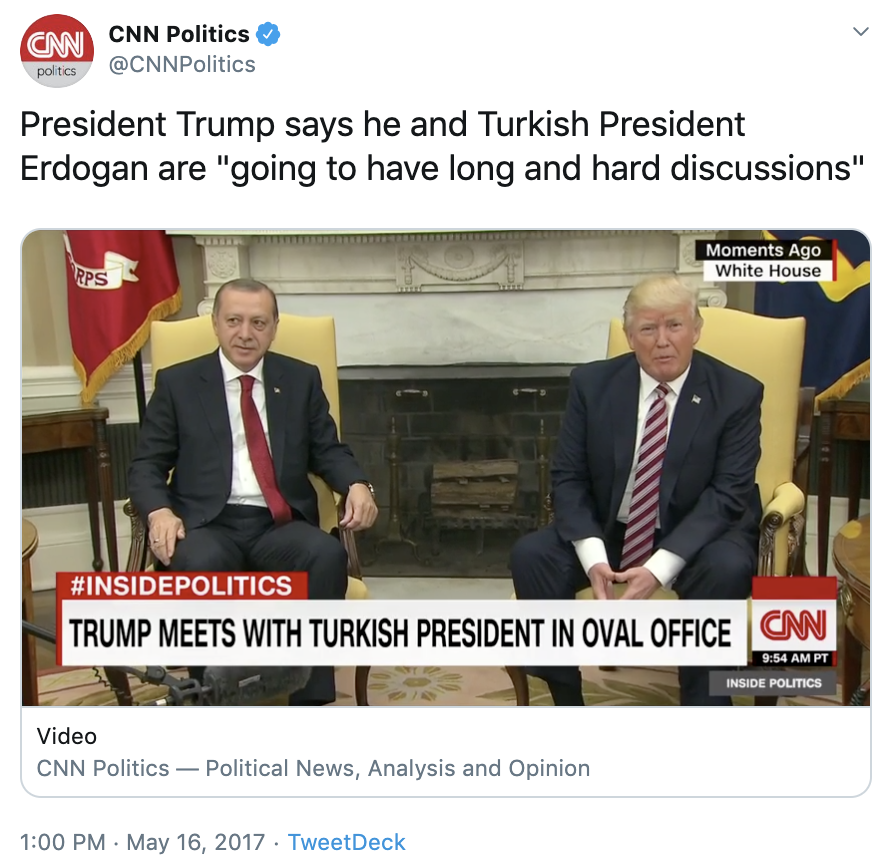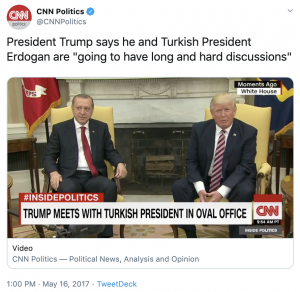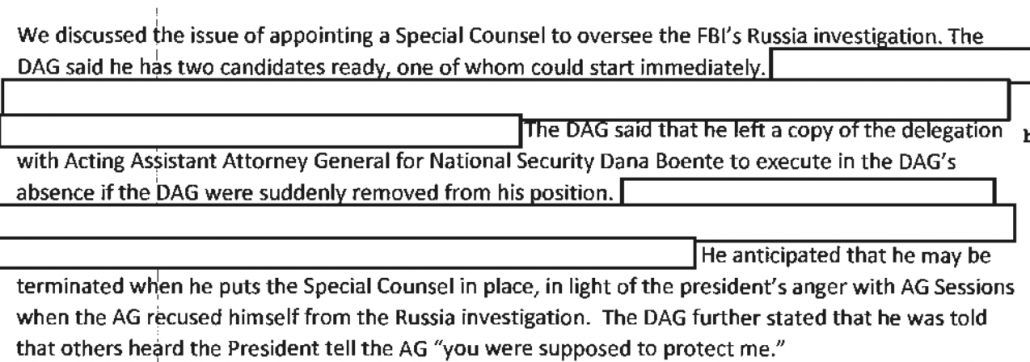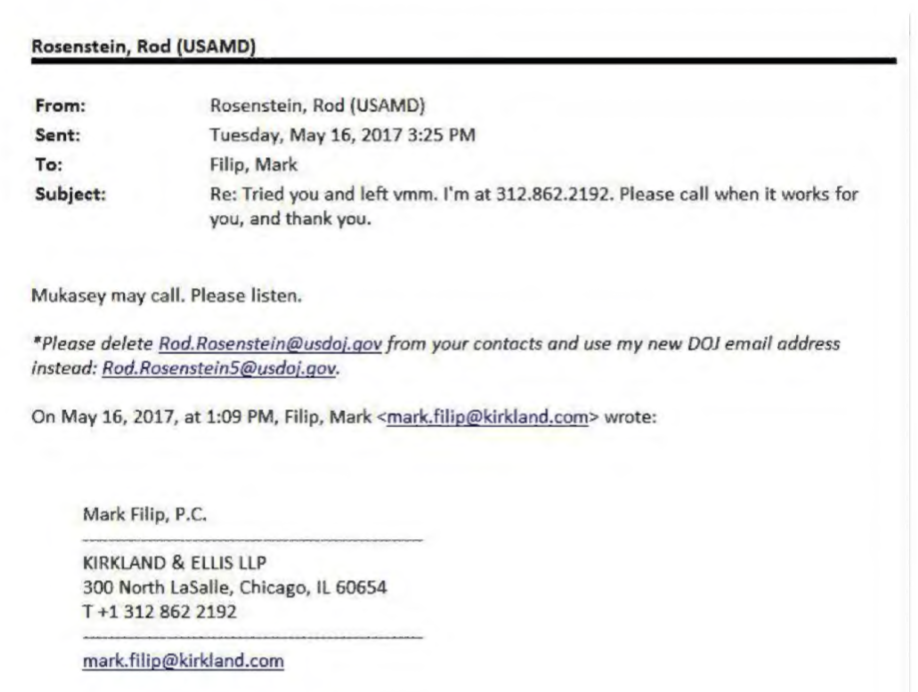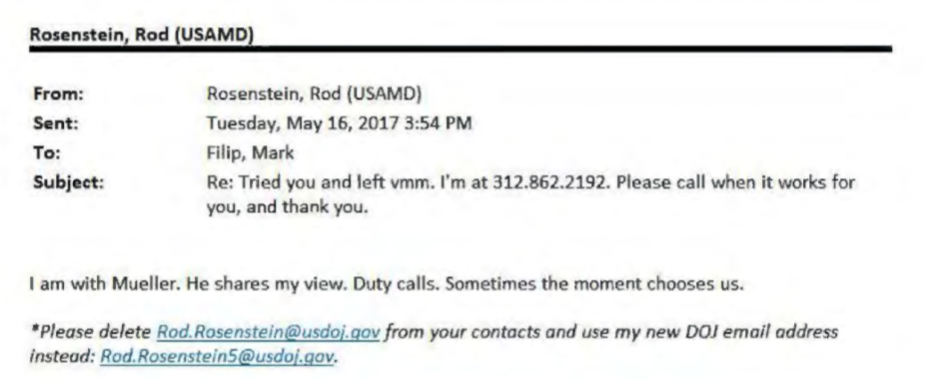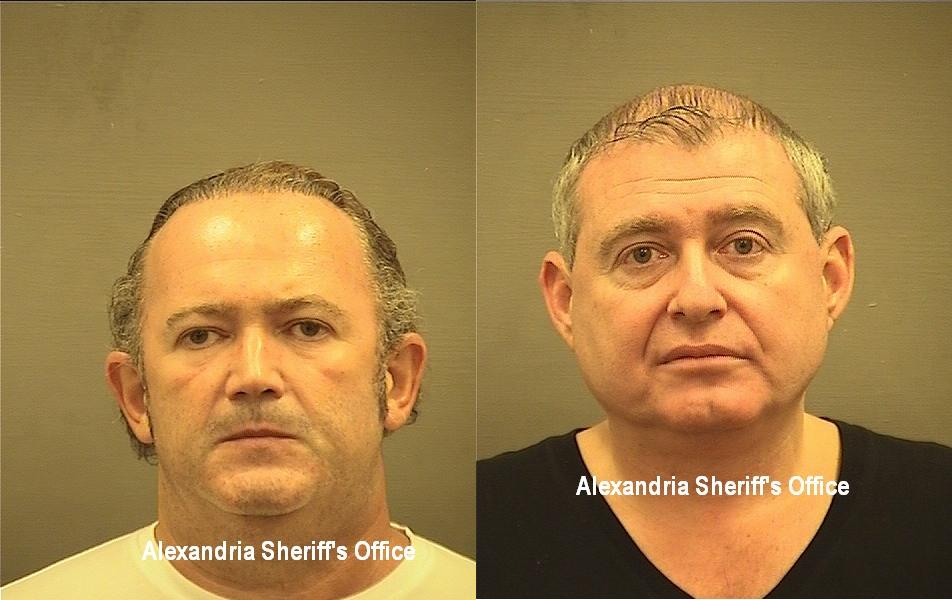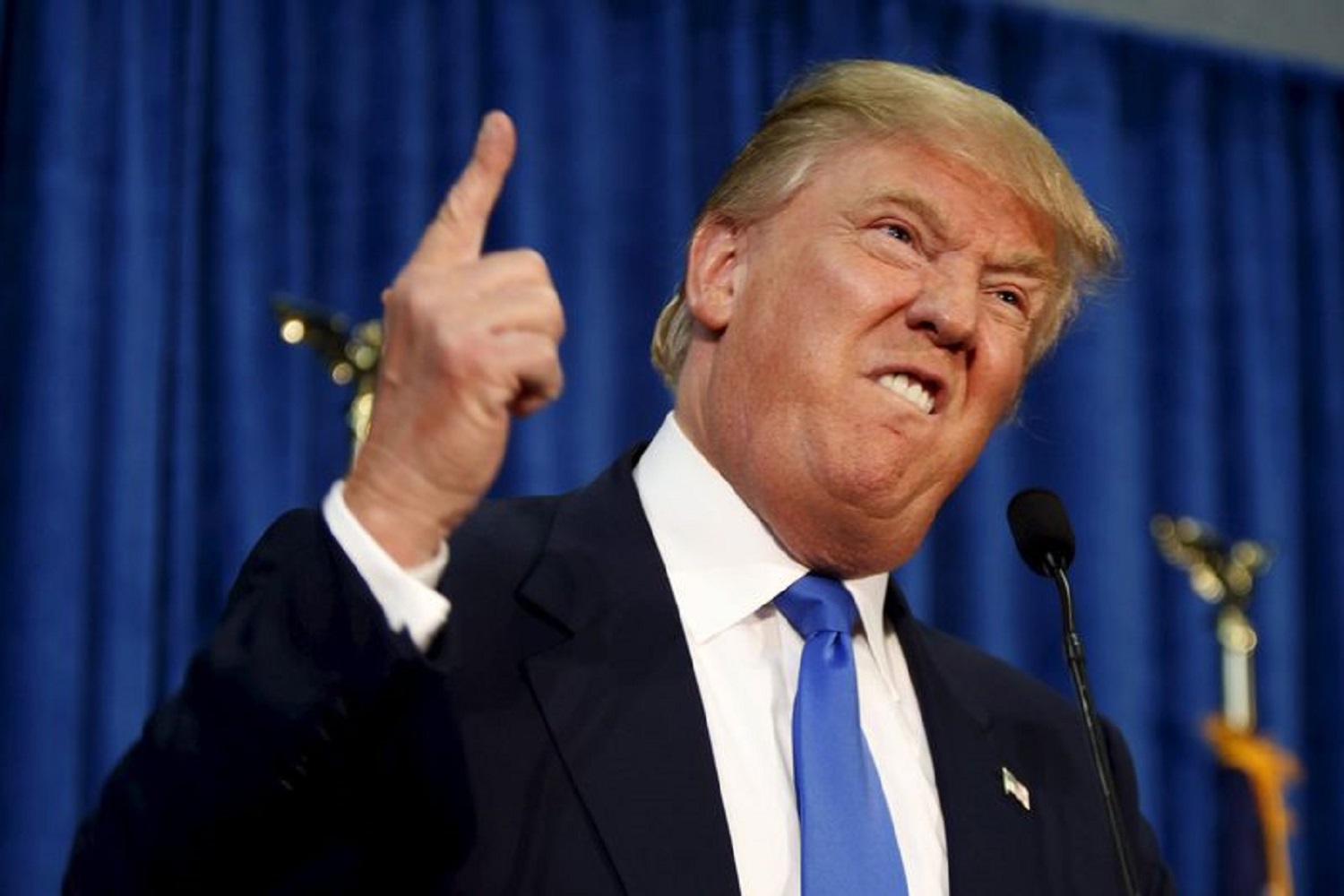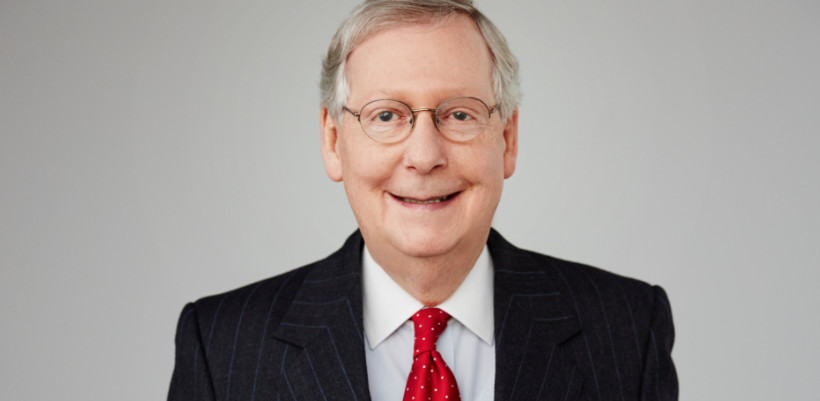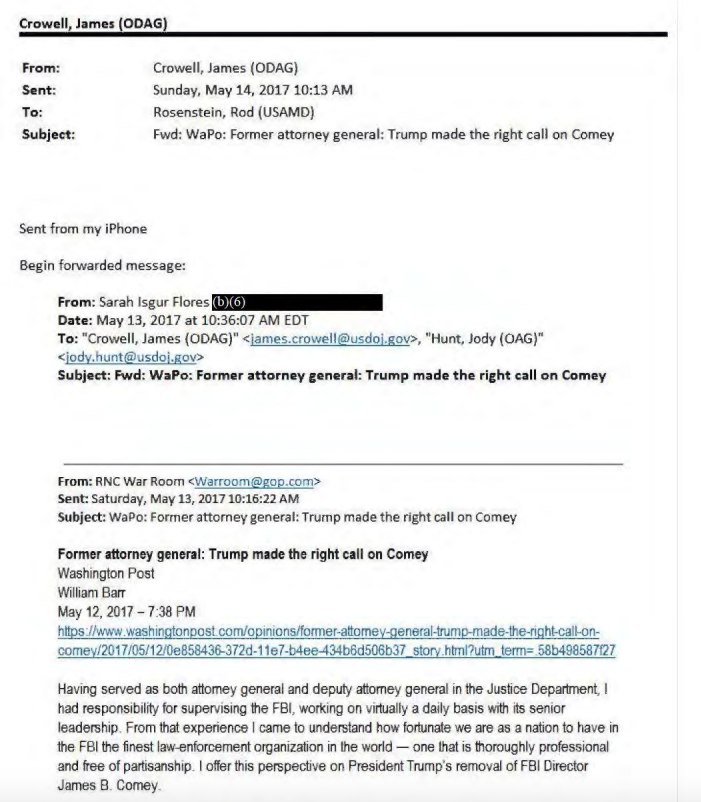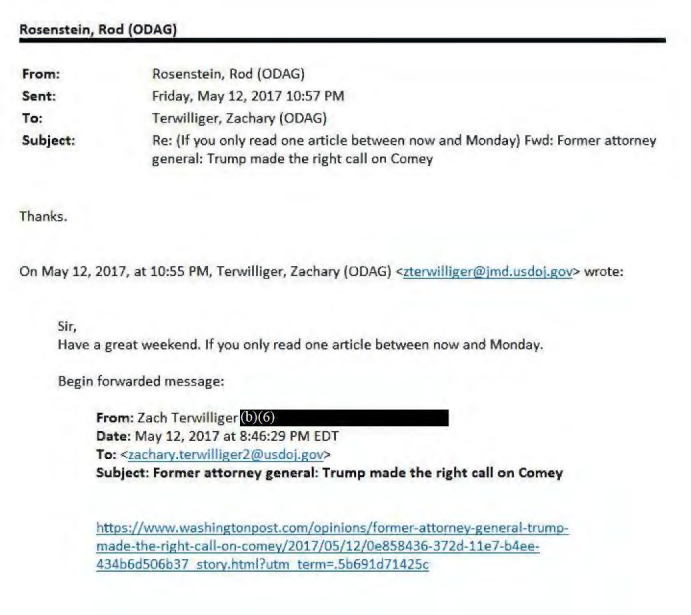I’m not a conspiracy theorist. Everything I’ve ever tweeted or — probably, if that’s what you’re referring to, it’s just backed by things I’ve read in the media. George Papadopoulos
First, I testified against both Downer and Mifsud a year ago to help launch Durham’s investigation. Now, the fruit of that accurate testimony is exposing the global nature of the attempt to set up the 2016 campaign and interfere in the democratic process. George Papadopoulos
There has only been one roadmap that clearly identifies what AG Barr and John Durham are investigating abroad, it’s all in my book. George Papadopoulos
In this post, I noted that Attorney General Bill Barr had put himself in the role of an FBI line Agent and flown to Italy not so he could interview Joseph Mifsud — and so obtain information that might be useful in assessing the credibility of his Russian-backed lawyer’s claim that Mifsud actually worked for Western, not Russian, intelligence — but instead to sit in a room and watch a movie, the taped deposition made by Mifsud’s Russian-linked lawyer.
Not only had Barr flown to Italy without obtaining the real ask, a face-to-face interview, but he did so chasing claims that were laundered through one of the frothy right’s stenographers into the mouth of George Papadopoulos for his October 24, 2018 Congressional testimony, provenance so unbelievably sketchy it would be shameful for Rudy Giuliani to chase the conspiracy theory, much less the Attorney General of the United States of America on the taxpayer dime.
As a reminder, to try to help him avoid prison for lying to the FBI, Papadopoulos’ lawyers explained that in 2016, “To say George was out of his depth would be a gross understatement” and described his pursuit of ties to Russia as part of his campaign work as an attempt to, ” be at the center of a globally significant event.” They explained that he “lied, minimized, and omitted material facts” about the Russian investigation, “Out of loyalty to the new president and his desire to be part of the administration.” This is not a man you’d think anyone in government would take seriously.
I think, because Papadopoulos has so little credibility outside of the frothy right, traditional journalists largely ignored the role of Papadoulos and his Congressional testimony until it had already taken hold of the entire frothy right. That’s changing. Vox has a good post on Papadopoulos’ centrality in Bill Barr’s treasure hunt, and NYT tried to debunk the Italian part of it pertaining to Mifsud.
But I’d like to look at one more detail, that makes Papadopoulos’ obvious lack of credibility even more non-existent.
Most of the conspiracy theories he floated in his testimony didn’t even come from his first-hand information. Rather, they’re stuff he read, often from known stenographers for the frothy right, relying on sources that are fairly obviously either close to the President and/or close to Russian and Ukrainian sources who shouldn’t be trusted; where he relied on credible journalists, he misrepresented it. Papadopoulos, then, serves not as witness. Instead, he’s just an empty vessel being used by others to carry a concocted story.
Papadopoulos obtained his beliefs about Joseph Mifsud from the Daily Caller, La Republica, Fox News, and other unsourced reports
One of the few exceptions is that Papadopoulos believes that Alexander Downer recorded the conversation in which Papadopoulos told the Australian that someone had told him Russia had dirt on Hillary they were going to release material on Hillary to help the Trump campaign because Downer holds his phone when he speaks.
You know, at that time, I’m like, Wow, all these, you know, very senior diplomats and people want to just meet this 28-year old young aid who just joined the campaign, I think, or month or so before. But why not, you know. They could send it back to the campaign that I just met with the Australian diplomat. What I’m going to tell you right now is what I remember telling special counsel directly to their face, too. One, I felt like Alexander Downer — first, I felt the meeting was completely controlled. That he was sent to meet me by some entity or some organization, and that he was recorded my conversation with him. And what do I mean by recording my conversation? If I had my phone I would show you of how strange this character was acting. I sat down with him and he pulls his phone out and he starts holding it like this towards me.
Mr. Meadows. Here.
Mr. Papadopoulos. Here, I’ll show you. And I told the special counsel this over a year ago. I’m sitting down within 5 or 6, 7 minutes of meeting this person, I’m talking and he goes like this to me, stone-faced, just holding his phone like this towards me. And I didn’t know what to think except do I tell him Will you stop recording me, or, What are you doing? Because it was just, it just left such an indelible memory of how this individual was acting that I never forgot it, and I felt that he was recording it and the meeting was controlled. So he held his phone up like this.
But Papadopoulos believes that Downer is a spy, not a diplomat, because of something he read (he doesn’t say what).
Mr. Meadows. That’s correct. And so following up on the question from my colleague here about transcripts. Was there any other time that you felt like that you might have been recorded or surveilled in a manner, as you’re looking back on it now? Obviously, at the time, you might not have been aware of it. Is there any time that you said, well, you know, this just doesn’t feel right? Can you share that with the committee?
Mr. Papadopoulos. Certainly, sir, and thank you for your kind words. I was — let’s go to the Alexander Downer meeting, this Australian person, who I’m —
Mr. Meadows. And for the record, this is the Australian diplomat as it has been reported, at least, the Australian diplomat, Mr. Downer.
Mr. Papadopoulos. Mr. Downer, that’s right, who, it’s my understanding, is probably the top diplomat in Australia, or was before he retired. He was the head of what I think is the equivalent of the CIA in Australia for around 17 years. I think that’s what I read about him. Anyway, he’s a very unknown person, this isn’t counselor at the Australian embassy in London, okay. [my emphasis]
As for the source of that information, Papadopoulos told Congress he held two incompatible beliefs, both beliefs he took from something he read. Most critically, the belief that got Bill Barr to fly to Italy — that Mifsud actually works for Western, not Russian, intelligence — Papadopoulos cited to a Daily Caller article which itself relayed claims Mifsud’s Russian-backed lawyer made he had read the day before.
Q Okay. So, and Mifsud, he presented himself as what? Who did he tell you he was?
A So looking back in my memory of this person, this is a mid-50’s person, describes himself as a former diplomat who is connected to the world, essentially. I remember he was even telling me that, you know, the Vietnamese prime minister is a good friend of mine. I mean, you have to understand this is the type of personality he was portraying himself as.
And, you know, I guess I took the bait because, you know, usually somebody who — at least in Washington, when somebody portrays themselves in a specific way and has credentials to back it, you believe them. But that’s how he portrayed himself. And then I can’t remember exactly the next thing that happened until he decided to introduce me to Putin’s fake niece in London, which we later found out is some sort of student. But I could get into those details of how that all started.
Q And what’s your — just to kind of jump way ahead, what’s your current understanding of who Mifsud is?
A My current understanding?
Q Yeah. A You know, I don’t want to espouse conspiracy theories because, you know, it’s horrifying to really think that they might be true, but just yesterday, there was a report in the Daily Caller from his own lawyer that he was working with the FBI when he approached me. And when he was working me, I guess — I don’t know if that’s a fact, and I’m not saying it’s a fact — I’m just relaying what the Daily Caller reported yesterday, with Chuck Ross, and it stated in a categorical fashion that Stephan Roh, who is Joseph Mifsud’s, I believe his President’s counsel, or PR person, said that Mifsud was never a Russian agent.
In fact, he’s a tremendous friend of western intelligence, which makes sense considering I met him at a western spying school in Rome. And all his interactions — this is just me trying to repeat the report, these are not my words — and when he met with me, he was working as some sort of asset of the FBI. I don’t know if that’s true or not. I’m just reporting what my current understanding is of this individual based on reports from journalists.
[snip]
Q And then at what point did you learn that, you know, he’s not who he said he was?
A Like I said, I don’t have the concrete proof of who this person is. I’m just going with reports. And all I can say is that I believe the day I was, my name was publicly released and Papadopoulos became this person that everyone now knows, Mifsud gave an interview to an Italian newspaper. And in this newspaper, he basically said, I’m not a Russian agent. I’m a Clinton supporter. I’m a Clinton Foundation donor, and that — something along those lines. I mean, don’t quote me exactly, you could look up the article yourself. It is in La Republica. And then all of a sudden, after that, he disappears off the face of the planet, which I always found as odd.
[snip]
I guess the overwhelming evidence, from what I’ve read, just in reports, nothing classified, of course, because I’m not privy to anything like that, and considering his own lawyer is saying it, Stephan Roh, that Mifsud is a western intelligence source. And, I guess, according to reports yesterday, he was working with the FBI
Meanwhile, Papadopoulos explains away Joseph Mifsud’s mention of Hillary’s emails weeks later to a comment that Andrew Napolitano made on Fox News the day before (not, as he claimed to believe in the same testimony, that it was a big Deep State set-up), even though Papadopoulos believed Mifsud really believed in the emails at the time and didn’t know of the Napolitano link. Papadopoulos also mischaracterizes what he believed about Mifsud at that moment and even later, given his public emails from the time.
A Yeah. So my understanding, my current memory of this meeting was that he invited me to the Andaz Hotel in London by Liverpool Street Station, I guess on April 26, 2016. And at this meeting, he was giddy, you know, like he had something he wanted to get off his chest. And he tells me that the Russians have thousands of Hillary Clinton emails. I never heard the word DNC.
[snip]
A And I’ve said this on TV, and I’m saying it here, I never heard the words DNC, Podesta, anything like that. I just heard “the Russians have thousands of Hillary Clinton’s emails.” And at that time, and we could look at the records, people were openly speculating about that, too. I think even Judge Napolitano on Fox News, the day before I met with Mifsud on April 25th was openly speculating the same thing. So my impression when he told me this information at the time was he is validating rumors. Because I didn’t feel that I heard something so different, like Democratic National Committee emails, WikiLeaks, I didn’t hear anything like that. So yeah, it was an interesting piece of information, but you know, by that point you have to understand, he had failed to introduce me to anyone of substance in the Russian Government. So he failed to do that, but now all of a sudden he has the keys to the kingdom about a massive potential conspiracy that Russia is involved in. So that was my mindset when he told me this.
[snip]
Q So to the best of your understanding now, you know, how do you believe Mr. Mifsud would have known about these — you know, the Russians having these Clinton emails?
A My understanding now?
Q Uh-huh. A Well, one —
Q Or at the time or now, but —
A Well — well, one, as I stated, but I don’t want to be exactly quoted, I believe the day before Joseph Mifsud told me about this issue, I believe April 25, 2016, Judge Andrew Napolitano was on Fox News openly speculating that the Russians have Hillary’s emails. I don’t know if that’s true or not. Somebody told me that that’s what happened. I’m not sure. That he might have heard it from there. He might have been telling the truth that he heard it from people in Russia. He might have been working for Western intelligence like the evidence now suggests he was. I don’t know. That’s not my job to figure it out.
[snip]
A My current memory makes me believe that he was stating it as a fact, and I took it as well.
Q And did you believe him at the time?
A At the time, yeah.
So to sum up the source of Papadopoulos’ congressional testimony regarding his beliefs about his interactions with Mifsud and then Downer, he’s relying on:
- Excuses relying on a Fox News host
- A Daily Caller story that relies on a Russian backed lawyer
- Some other unsourced claim
- Downer’s posture and mannerisms
Papadopoulos obtained his beliefes about the Stephan Halper meetings from Twitter, NYT, and John Solomon
A similar pattern emerges regarding his interactions with Stephan Halper, the FBI informant sent with a presumed undercover Agent using the name Azra Turk to interview Papadopoulos about how he learned of the Hillary emails. Papadopoulos’ testimony to Congress is that he believes Azra Turk’s name is fake (it almost certainly was) because of something he read on Twitter
So I get there. I get to London. And he introduces — or he does not introduce me to, but I can’t remember exactly how I came into contact with his assistant, this young lady named Azra Turk, which I think is a fake name, by the way. My —
Mr. Meadows. Why do you believe it’s a fake name?
Mr. Papadopoulos. Reading — reading Twitter and people saying that Azra in Turkish means pure and then Turk. So unless she has the name of pure Turk.
He testified he believes Turk asked him about hacking because he read it in the NYT (the NYT actually shows Halper asked about this).
Mr. Papadopoulos. Just who I am, my background in the energy business, because everyone was curious about my background in the energy business in Israel. And that’s another thing we’ll get to about what I think why I had a FISA on me, but I don’t know. She then apparently — I don’t remember it, I’m just reading The New York Times. She starts asking me about hacking. I don’t remember her actually asking me that, I just read it in The New York Times. Nevertheless, she introduces me the next time to Stefan Halper.
Mr. Meadows. She asked you about hacking?
Mr. Papadopoulos. I don’t remember it. I just — I think I read that particular —
Mr. Meadows. You’ve read that?
Mr. Papadopoulos. Yes, that’s what I — I think I read it in The New York Times.
And Papadopoulos believes (correctly) there is a transcript of these conversations and (falsely) that it is exonerating because of what John Solomon wrote days earlier.
Mr. Papadopoulos. I’m sure the transcript exists and you’ve probably read it, so I don’t want to be wrong on exactly what he said. But —
Mr. Meadows. You say a transcript exists. A transcript exists of that conversation?
Mr. Papadopoulos. That’s I guess what John Solomon reported a couple days ago.
Mr. Meadows. So are you aware of a transcript existing? I mean —
Mr. Papadopoulos. I wasn’t aware of a transcript existing personally.
Mr. Meadows. So you have no personal knowledge of it?
Mr. Papadopoulos. I had no personal knowledge, no.
Mr. Meadows. But you think that he could have been recording you is what you’re suggesting?
Mr. Papadopoulos. Yes.
Mr. Meadows. All right. Go ahead.
Mr. Papadopoulos. And after he was throwing these allegations at me, I —
Mr. Meadows. And by allegations, allegations that the Trump campaign was benefiting from Hillary Clinton emails?
Mr. Papadopoulos. Something along those lines, sir. And I think I pushed back and I told him, I don’t know what the hell you’re talking about. What you’re talking about is something along the lines of treason. I’m not involved. I don’t know anyone in the campaign who’s involved. And, you know, I really have nothing to do with Russia. That’s — something along those lines is how I think I responded to this person.
As I have noted, if the transcript reflects what Papadopoulos says it does, it shows that he lied about ongoing connections to Russia; he had been planning a secret meeting with Russia for precisely that date during the summer, and would boast of a pro-Russian interview to Mifsud some weeks later (which got him fired from the campaign). Plus, Papadopoulos’ claim an action — optimizing the WikiLeaks releases, which Roger Stone was doing even as Papadopoulos gave this answer — would amount to treason explains why he would lie to the FBI about any knowledge four months later. That is, the transcript, if it says what Papadopoulos says, shows the deceit of a guilty conscience, not exoneration.
Papadopolous cites an article quoting his lawyer saying his arrest was totally legal to claim it was rushed
In addition to citing his beliefs about the Israeli that almost got him charged with being a foreign agent of Israel to a misreading of a WikiLeaks cable, Papadopoulos does this most hysterically in attempting to respond to Mark Meadows’ clear demands that he claim the circumstances of his arrest (and a border search of his briefcase the likes of which happens all the time to brown people who aren’t even being arrested) was improper. At the beginning of a colloquy where Papadopoulos repeatedly stops short of using the inflammatory language Meadows tries to feed him,, the former campaign aide suggests a Politico story suggested a deviation from the norm on arrests.
So everything was done in a very — I had never been arrested before. I didn’t know that was a normal procedure. But reading certain articles about my arrest in Politico and other newspapers, it seems like there was some sort of rush to arrest me and —
[snip]
Mr. Meadows. So you didn’t say, Why are you arresting me?
Mr. Papadopoulos. The only thing I remember was something along the lines of — and I can’t remember if it was after I had the handcuffs on me that they told me this is what happens when you don’t tell us everything about your Russia contacts. But I don’t remember any formal charges, or them telling me You are under arrest for X, Y or Z. That, I don’t remember at all.
Mr. Meadows. They told you — I guess, they gave your Miranda rights?
Mr. Papadopoulos. I don’t remember that. I don’t remember that. I’m sure there might be the video or a transcript of what was going on. You have to understand, I had just come off a trans-Atlantic flight.
Mr. Meadows. Right.
[snip]
Mr. Meadows. So that’s your testimony. So they basically take your briefcase and they start searching it? Did they ask you permission to search it?
Mr. Papadopoulos. My memory is that they put me in the room at the airport, did not ask me for any permission whatsoever, and then they began to search through my briefcase in a very, quite violent manner.
Mr. Meadows. By “violent,” what do you mean, just ripping it —
Mr. Papadopoulos. Just opening it, like that, putting their hands and just digging around. That’s, I just didn’t understand what was going on.
Mr. Meadows. And they didn’t indicate what they were looking for?
Mr. Papadopoulos. I don’t remember them indicating anything, no. And I don’t remember them actually formally, I guess, looking through my bag until I — I can’t remember — after we went in a car to another facility where I was processed. It was very strange.
Mr. Meadows. So did they show you a warrant to search those things?
Mr. Papadopoulos. I didn’t —
Mr. Meadows. Did they have a warrant to search your —
Mr. Papadopoulos. I don’t remember any warrant. In fact, the whole situation was very, it seemed very rushed and very chaotic.
Mr. Meadows. So you’re telling me that they searched your personal property without a warrant prior to you coming through Customs?
Mr. Papadopoulos. That’s what I remember, yes, sir.
Here’s the Politico report. While reporting that the arrest was likely done in an attempt to shock Papadopolous, it also cites his own lawyer saying, “What they did was absolutely lawful,” [Thomas] Breen said. “If I had a complaint, you’d know about it. I’ve got a short fuse.”
Mark Meadows allowed Papadopoulos to tell a less damning fairy tale by neglecting to get backup emails from him first
This charade, letting a witness testify to Congress not about what he personally knows, but what he read about himself, often what he read in propaganda outlets relying on sketchy sources, would be bad enough. It was made far, far worse because of a simple fact about the hearing: the Republicans who set it up (and this appears to have been run almost entirely by Mark Meadows) did not, first, demand that Papadopoulos provide the backup documents that would make such questioning even remotely worthwhile.
As a result, Papadopoulos responded to question after question that went to the substance of his sustained interest in working with Russia with vague claims about what he did and did not remember and a offer, instead, to share the emails that might pinpoint what he really knew and did. Over and over, he happens to tell a story that is less damning.
Whether out of forgetfulness or deceit, for example, Papadopoulos foreshortens two things about the campaign: first, the claimed date when the campaign started covering up its ties to Russia, which was July, not May.
Q You said also that you continued to suggest this Trump-Putin summit, but eventually, you found out that the campaign just wasn’t interested. Can you tell me the process by which you came to understand that the campaign wasn’t interested in setting up a Trump-Putin meeting?
A Yes. As I remember it, by the time Manafort took the helm of the campaign, I just emailed him, Are we interested in this or not? I think I forwarded to him an email from Ivan Timofeev where he’s asking for a letter to be signed by the campaign if this is a serious proposal or not, something like that. And I don’t think I ever received a response from Manafort. And you just put two and two together, no one’s interested, so stop it.
He also foreshortens the time he was in contact with Mifsud, which extended even after the election.
Q When was the last time you remember communicating with Professor Misfud?
A Off the top of my memory I think it was the summer of 2016.
Perhaps the most glaring instance of this, however, pertains to whether Walid Phares was involved in pursuing a secret meeting with Russia that would have taken place at the precise time Papadopoulos was in London getting interviewed by Stefan Halper. Papadopoulos answered a question about whether he discussed the secret meeting with Phares not by answering, but by saying he wasn’t sure it was in the emails.
Q You mentioned a number of emails where both of you would have been copied. Did you and Mr. Phares have any direct communication just the two of you?
A We met face to face at the TAG Summit. And then we obviously met at the March 31st meeting. And I can’t remember if we met another time in person or not. But we certainly were in correspondence for months over email.
Q Did you discuss your efforts to set up the Putin-Trump meeting with Mr. Phares?
A I’m not sure he was copied on those particular emails, but I could send whatever emails I have with him to the committee. It’s fine with me.
As the Meuller Report makes clear, very very damning details about precisely this topic were in Papadopoulos’ emails.
Papadopoulos remembered discussing Russia and a foreign policy trip with Clovis and Phares during the event.484 Papadopoulos’s recollection is consistent with emails sent before and after the TAG summit. The pre-summit messages included a July 11, 2016 email in which Phares suggested meeting Papadopoulos the day after the summit to chat,485 and a July 12 message in the same chain in which Phares advised Papadopoulos that other summit attendees “are very nervous about Russia. So be aware.”486 Ten days after the summit, Papadopoulos sent an email to Mifsud listing Phares and Clovis as other “participants” in a potential meeting at the London Academy of Diplomacy.487
This is what any hearing with George Papadopoulos should be about, details that would make any allegation that his claim, in mid-September, that he had nothing to do with Russia would be inculpatory, not exculpatory. But that’s not the hearing Mark Meadows decided to stage.
According to someone familiar with the aftermath of this hearing, Papadopoulos never did supply the emails he promised, at least not in a way such that they got shared with Democratic staffers.
Papadopoulos tells Congress there is no substance behind allegations that the main source for his allegations made
The whole hearing was absurd, which is why it is all the more ridiculous that the Attorney General of the United States is running around the world treating these conspiracies as if they have merit.
But don’t take my word — or the public record — for it. Take the word of the hearing’s star witness, George Papadopoulos. He told Congress that there was no substance to the allegations that Stephan Roh, the Mifsud lawyer whose conspiracies Bill Barr is currently chasing, had made that he, Papadopoulos, was a western intelligence operative.
Q Are you aware that in a Daily Caller article, Mr. Roh has referred to you as a western intelligence operative?
A I wasn’t aware of that, but I was aware he wrote a book where he speculated that I could be that, but of course I don’t know this person beyond a couple of emails and phone calls, so, of course, he has no substance behind any allegations.
So on the one subject about which Papadopoulos claimed to have first hand knowledge here, he said Roh was making stuff up.
And yet, Bill Barr still treats Roh’s other allegations — the ones laundered through propaganda outlets — as true.


